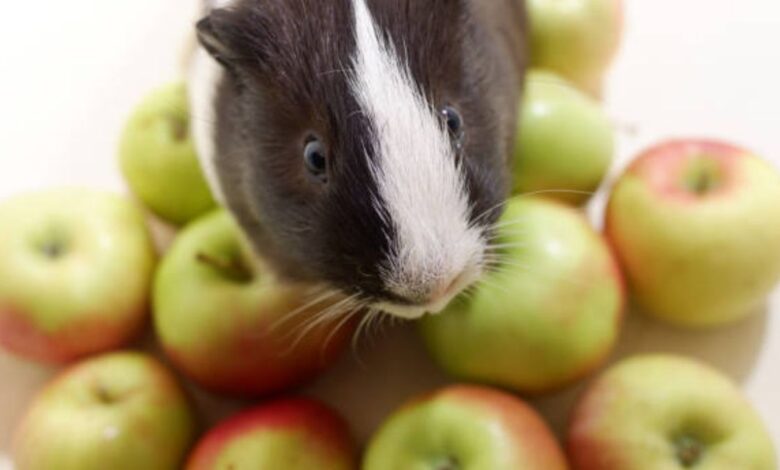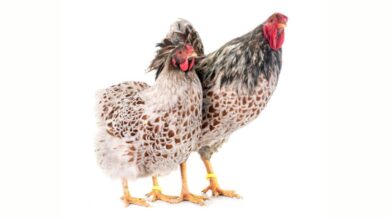Can guinea pigs eat apples every day? What pet owners should know

Are you a proud guinea pig owner wondering if your furry friend can indulge in the sweet crunch of apples every day? You’re not alone! Many pet owners are curious about what treats they can safely offer their small companions. Can guinea pigs eat apples? Apples, with their juicy texture and delightful flavor, might seem like the perfect snack for your little buddy. But before you start slicing up those fruits, it’s essential to know how these snacks fit into your guinea pig’s diet. Let’s dive deep into the world of guinea pig nutrition and find out just how often apples should be on the menu!
The Nutritional Needs of Guinea Pigs
Guinea pigs have specific nutritional needs that differ from many other pets. Their diet primarily consists of hay, which should make up the bulk of their meals. Timothy hay is a popular choice, providing essential fiber for healthy digestion.
Fresh vegetables are also crucial in their daily intake. Leafy greens like romaine lettuce and bell peppers offer vitamins and minerals without excessive sugars.
Unlike some animals, guinea pigs cannot produce vitamin C on their own. Therefore, it’s vital to incorporate vitamin C-rich foods into their diet or provide supplements to keep them healthy.
Treats can be enjoyable but need to be given sparingly. High-sugar fruits might sound tempting but can disrupt their digestive balance if overfed. Understanding these dietary requirements helps ensure your guinea pig stays happy and thriving!
Apples as a Part of a Guinea Pig’s Diet
Apples can be a delightful treat for guinea pigs, but they should be offered in moderation. These fruits are packed with vitamins and antioxidants that contribute to your pet’s overall health.
Guinea pigs require a balanced diet primarily consisting of hay, fresh vegetables, and specially formulated pellets. While apples add variety, they cannot replace the essential nutrients found in their staple foods.
It’s crucial to remember that apples contain natural sugars. Excessive sugar intake can lead to obesity or dental issues in guinea pigs. A small slice or two once or twice a week is generally considered safe.
Always wash the apple thoroughly before serving it to remove any pesticides. Removing seeds is also important as they contain cyanide, which can be harmful if ingested by your furry friend.
Offering apples occasionally ensures that their diet remains exciting while maintaining their health.
How Much Apple is Safe for Guinea Pigs to Eat?
When it comes to feeding apples to your guinea pig, moderation is key. These small pets have sensitive digestive systems that can be easily upset by excessive sugars.
A good rule of thumb is to offer a few small slices or cubes once or twice a week. This helps keep their diet balanced while allowing them to enjoy the sweet taste of apples.
Be sure to remove any seeds and core before serving, as these parts can be harmful. Always wash the fruit thoroughly to eliminate pesticides and chemicals.
If you’re unsure how much apple your guinea pig should eat, monitor their reaction after introducing this treat. Watch for any signs of discomfort or changes in behavior. Adjust accordingly if needed, keeping their health a top priority at all times.
Other Fruits and Vegetables That are Safe for Guinea Pigs
Can guinea pigs eat apples? Guinea pigs thrive on a varied diet that includes more than just apples. Many fruits and vegetables are safe for them to enjoy, adding excitement to their meals.
Leafy greens like kale, romaine lettuce, and cilantro are excellent choices. These leafy treats provide essential vitamins while keeping your guinea pig hydrated.
Other veggies such as bell peppers and carrots can also be great additions. Bell peppers are particularly high in vitamin C, crucial for your pet’s health.
As for fruits, strawberries, blueberries, and watermelon can serve as delightful snacks. Remember to introduce these gradually to avoid upsetting their stomachs.
Always wash produce thoroughly before serving it up. Freshness is key; wilted or spoiled items should never reach your guinea pig’s bowl!
Signs of Overfeeding or Underfeeding Your Guinea Pig
Monitoring your guinea pig’s health is crucial. Both overfeeding and underfeeding can lead to serious issues.
Signs of overfeeding include rapid weight gain and lethargy. Your furry friend might become less active, preferring to lounge rather than explore. Watch for soft feces or diarrhea, which often indicates too many sugary treats like apples.
On the flip side, underfed guinea pigs may lose weight quickly. They might seem overly eager at mealtime and show constant searching behavior for food. A lack of energy is noticeable; you could see them sleeping more than usual.
Always check their water intake as well. Dehydration can be a concern if they’re not eating enough fresh produce or hay daily.
Regular weigh-ins are essential in spotting these changes early on. Keeping an eye on their behaviors helps ensure they stay healthy and happy.
Tips for Introducing Apples into Your Guinea Pig’s Diet
Introducing apples into your guinea pig’s diet should be a gradual process. Start by offering a small slice or wedge to gauge their reaction. Watch for any signs of distress or refusal, which may indicate they’re not ready for this new treat.
Always wash the apple thoroughly to remove pesticides and chemicals. It’s best to serve organic apples when possible, ensuring a safer option for your pet.
Cut the apple into bite-sized pieces. This makes it easier for them to chew and digest, especially if they’re not used to hard fruits yet.
Pair apples with their regular hay or other veggies during feeding time. This can help balance their diet while familiarizing them with different flavors.
Monitor their weight closely after introducing apples. A healthy guinea pig will maintain stability without losing or gaining excessive weight from treats like fruit.
Conclusion
Can guinea pigs eat apples? Guinea pigs are delightful companions, and understanding their nutritional needs is key to providing them with a healthy life. While apples can be a tasty treat for these little critters, they should not be the mainstay of their diet. Moderation is essential.
Offering small amounts of apple occasionally can provide your guinea pig with vitamins and hydration. However, regular consumption may lead to health issues like obesity or digestive problems due to the sugar content in apples.
Alongside apples, there are many other fruits and vegetables that you can safely introduce into your guinea pig’s diet to ensure variety and balanced nutrition. Always pay attention to portion sizes and monitor how your pet reacts to new foods.
Taking care of a guinea pig involves more than just feeding them; it requires observation as well. If you notice signs of overfeeding or underfeeding, it’s crucial to adjust their diet accordingly.
When introducing any new food item—apples included—do so gradually. This approach helps avoid upsetting their delicate digestive system while allowing you both time to enjoy this new addition together.
Keeping all this in mind will help create a nutritious eating plan for your furry friend that includes some occasional apple treats without compromising their health!

